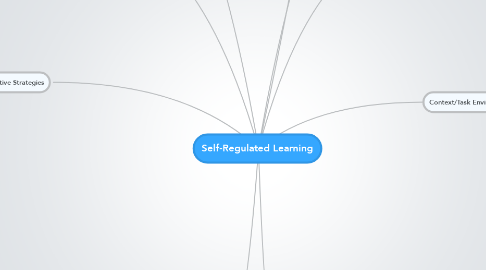Self-Regulated Learning
da Hannes Hansen


1. Performance Goal Orientation
1.1. Approach Focus
1.1.1. Besting: Goal to outperform others in group
1.1.1.1. No clear link to cognitive strategies
1.1.1.2. Links moderated by efficacy beliefs - these tend to be strong for outbesting students
1.1.1.3. Self-handicapping and avoidance of help-seeking
1.1.1.4. Positive relation with interest and task value
1.1.2. Normative standards for Self-Evaluation
1.2. Avoidance Focus
1.2.1. Not looking Stupid
1.2.2. Generally negatively related to self-regulated learning
1.2.2.1. Low perception of self-efficacy
2. Cognitive Strategies
2.1. Planning / Activation (eg Target Goal Setting, Knowledge Activation)
2.2. Monitoring (eg Metacognition)
2.3. Control (eg Selection and Use of cognitive strategies)
2.4. Reflection / Reaction (eg Evaluation of Performance, Attributions, Judgements)
3. Motivation
3.1. Forethought, Planning (eg Perception of difficulty, Task value and interest, Goal orientation)
3.2. Monitoring (eg Awareness of efficacy levels and self-doubts)
3.3. Control (eg Use of strategies for managing motivation: self-talk, extrinsic rewards, self-handicapping)
3.4. Reaction and Reflection (eg Attrbutions, Evaluation of self-efficacy )
4. ASSUMPTION OF ACTIVE; CONSTRUCTIVE LEARNERS
5. ASSUMPTION OF POTENTIAL FOR CONTROL AND REGULATION
6. Mastery Goal Orientation
6.1. Focus on progress and undertanding; Mastering tasks and contents
6.1.1. High influence on use of SRL strategies
6.1.2. Strong links to positive attribution
6.1.3. Strong link to adaptive help-seeking
6.2. Standards of Self-Improvement
6.3. Deep Understanding and increasing competence
6.4. (Avoidance Focus: Avoiding not mastering)
6.4.1. Generally negatively related to self-regulated learning (eg less adaptive monitoring)
6.4.2. Negative motivational beliefs / anxiety
